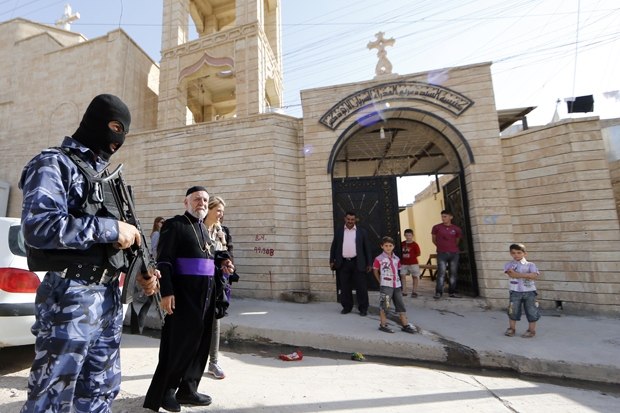She took the call herself the night the Islamic State came into Mosul. ‘Convert or leave or you’ll be killed,’ she was told. The callers, identifying themselves as Isis members, knew the household was Christian because her husband worked as a priest in the city. They fled that night.
Like many of their Christian neighbours they sought refuge in the monastery of St Matthew. But Isis took that over, tore down the Cross, smashed all Cross-decorated windows, used it for their own prayers and flew their black flag on top of the church. Across what was Nineveh, Iraq’s Christians spent this year fleeing from village to village, hoping to find safety somewhere.
This woman’s husband and son continued their ministry among the scattered congregations of Iraq. But the wife, who took the call, is now in west London. We spoke there one Sunday morning earlier this year. To attend the morning service in a Syriac church and hear the Lord’s Prayer uttered in the original Aramaic in which Jesus taught it is profoundly moving at any time. But this year the prayers of this beleaguered congregation of Iraqi Christians in Acton have taken on a terrible, plaintive urgency.
The Syriac church in London has swelled tragically in recent years. Perhaps 70 per cent of the present congregation have come to the UK since 2003. Mainly Iraqi, there are also a couple of Syrian families and some Lebanese. Several years ago they raised the money to build what is now called a cathedral in an unassuming street in this London suburb.
The hymns are in Syriac, the sermon in Arabic. The prayer for the dead is, like the Lord’s Prayer, in the language of Christ. Towards the end of the service the Archbishop mentions to his congregation that a visitor is sitting at the back who would like to speak to recent arrivals.









Comments
Join the debate for just £1 a month
Be part of the conversation with other Spectator readers by getting your first three months for £3.
UNLOCK ACCESS Just £1 a monthAlready a subscriber? Log in